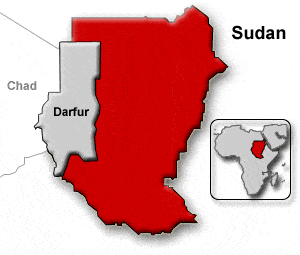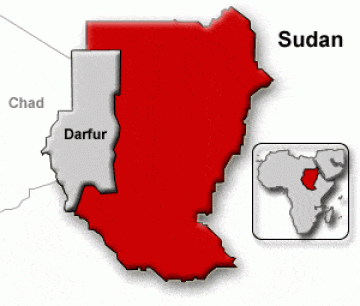
“Lo taamod al dam réakha”: Thou shall not stand idly by the shedding of the blood of fellow human beings. When Holocaust survivor Elie Weisel was asked to name the most important commandment, this was his response.
I recently finished reading Weisel’s Night with my students. I’ve taught it before, but this year has been different. Perhaps I have an especially thoughtful group of students – young adults who are compassionate and wonderfully attuned to both justice and hypocrisy. Perhaps I have finally taught for enough years to allow conversations to become what they want to be, without over-planning. In early December, I showed them the documentary Paperclips. It profiles a small middle school in rural Tennesee whose project on the Holocaust eventually transforms the town. They were riveted. The next day they asked, predictably, “Can we do a project like that?”
I teach Night, and “Letter from Birmingham Jail” and Frederick Douglass for a clichéd yet still pressing reason: Never Again (or again or again). When I mentioned that the Holocaust was not the last genocide, some students were visibly jarred. When I noted that the situation in Darfur has been labeled genocide, they had their project. Research. Op-ed essays. Bracelets. Letters to congressional leaders. School and community education. A benefit concert in the works. I love teaching middle school.
The week we began these conversations about Darfur, the lesson in Relief Society was on Letting Our Light Shine Before The World. Sitting quietly, listening to an exhortation to “call Walmart to protest the shameful utterance of ‘Happy Holiday,’” I began to reflect on the chasm between the social activism I am drawn to and the social activism frequently advocated from the pulpit. Sometimes I have Quaker/Unitarian Universalist envy when I look at the long list of abolitionists, civil rights, and social activists who’ve graced their ranks.
While I wasn’t surprised, I was still disappointed when I reviewed the diverse membership of the Save Darfur Coalition — an alliance of over 100 faith-based, humanitarian and human rights organizations. The Baptists are on the list, sandwiched between Catholics, Lutherans, Jews, Buddhists, Muslims, and Unitarians.
No “Church of Jesus Christ of Latter-Day Saints.”
Why? What harm could come from formally lending our name to protest crimes against humanity? On Larry King a couple of years ago, President Hinckley noted, “The church does not become involved in politics” but “we speak very strongly on moral issues” — e.g.: Gambling. Same-sex marraige. Liquor laws.
But wasn’t genocide the moral failure of the twentieth century? (At some point I’ll post a review of Samantha Power’s A Problem from Hell: America and the Age of Genocide.)
To be fair, the church hasn’t been entirely silent on the suffering in Darfur. Hinckley mentioned it briefly in the last conference. The complete statement was: “Man’s inhumanity to man expressed in past and present conflict has and continues to bring unspeakable suffering. In the Darfur region of Sudan, tens of thousands** have been killed and well over a million have been left homeless.” However, this short statement was in the context of personal preparation in the last days and transitioned into a discussion of food storage. (LDS blogs have proliferated discussions of gay marriage and p*rnography, but have given scant mention to the first genocide of the twenty-first century. Kudos, though, to Kaimi for writing a post in 2004 and again in 2005 on the crisis).
I guess I am left wondering about which battles we pick and why — personally and as a church. At some level, I am a fan of those who become socially and politically engaged to any degree – even when it is for causes I do not support. I love the scene in Biloxi Blues when Arnold Epstein chastises his friend: “You’re a witness. You’re always standing around watching what’s happening, scribbling in your book what other people do. You have to get in the middle of it. You have to take sides. Make a contribution to the fight. Any fight. The one you believe in.”
However, as someday “saint,” I keep returning Elie Weisel’s comments on Darfur:
“Sudan has become today’s world capital of human pain, suffering and agony . . . How can a citizen of a free country not pay attention? How can anyone, anywhere not feel outraged? How can a person, whether religious or secular, not be moved by compassion? And above all, how can anyone who remembers remain silent? . . . Should the Sudanese victims feel abandoned and neglected, it would be our fault – and perhaps our guilt.”
Some battles feel more pressing than others.
**Note: More accurately hundreds of thousands have been killed. Current estimates run about 400,000, with the death toll exceeding 10,000 a month – 70% children. These numbers do not reflect systematic rape of women. If war breaks out between Chad and Sudan, the death toll will increase dramatically. For a personal face to the crisis, I highly recommend reading Nicholas Kristoff’s columns in the New York Times (if you don’t have a subscription, google his name with Darfur and you’ll find plenty to read). Also, consider taking a few minutes to send a postcard.





